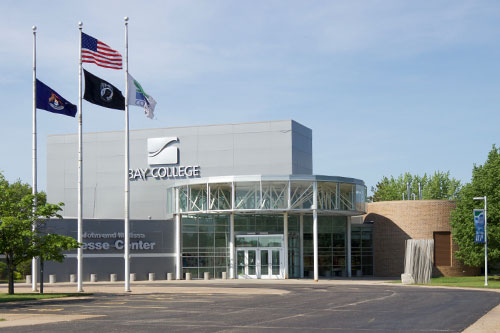Transfer

Transfer to Bay College
Thinking about transferring to Bay College? Students may request that credits earned at another institution be transferred to Bay College.
Learn More
Transfer from Bay College
Thinking about transferring to another institution? Students may send Bay College transcripts to other institutions and request transfer of credits to that school.
Learn More
Transfer Agreements
Formal agreements between two or more Colleges and Universities documenting the transfer policies for a specific academic program or degree.
Learn More
Michigan Transfer Pathways
Bay College joins with community colleges across the state to create easy-to-understand pathways for students transferring credit to a university.
Learn More
Course Equivalencies
The Michigan Transfer Network website provides quick and easy data on how your Bay College courses will transfer within Michigan institutions.
Learn More
Industry Credentials
The Michigan Transfer Network allows students and advisors to view credit for industry credentials at many Michigan colleges and universities.
Search Credentials